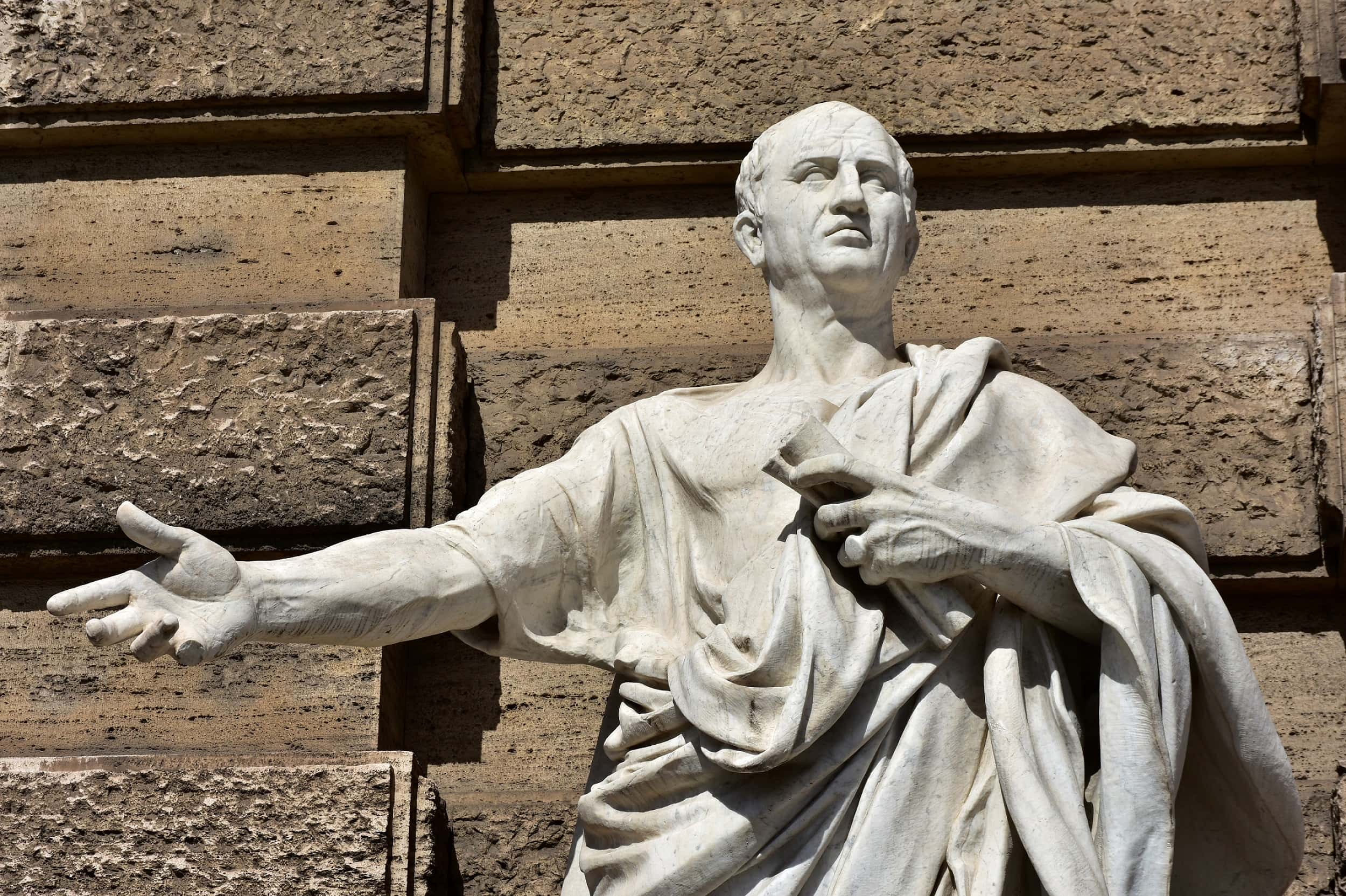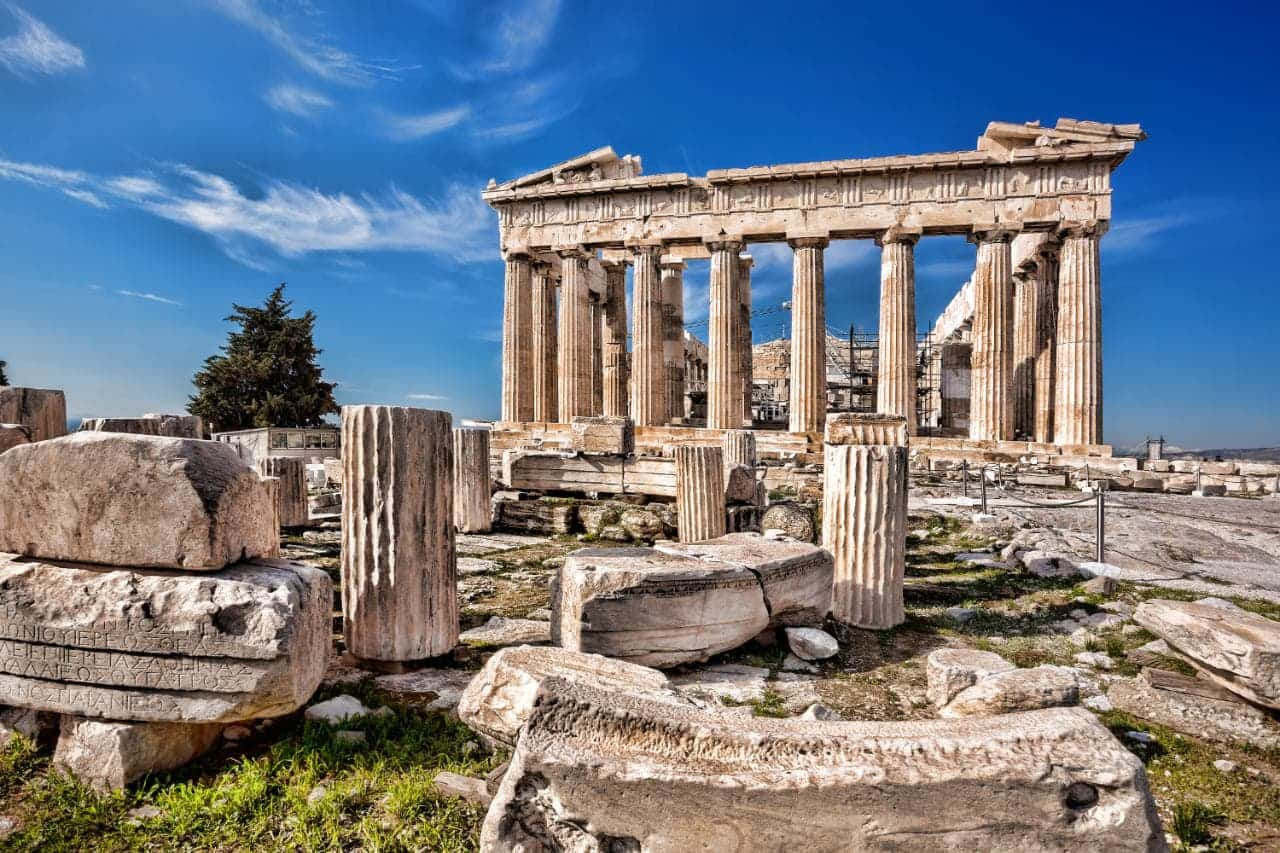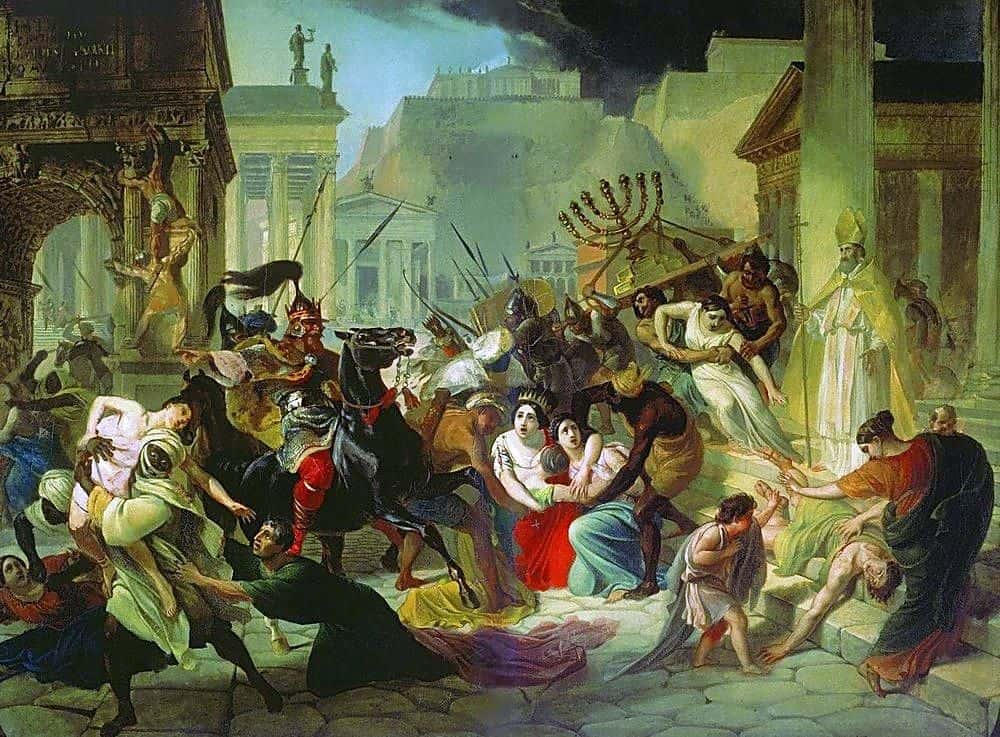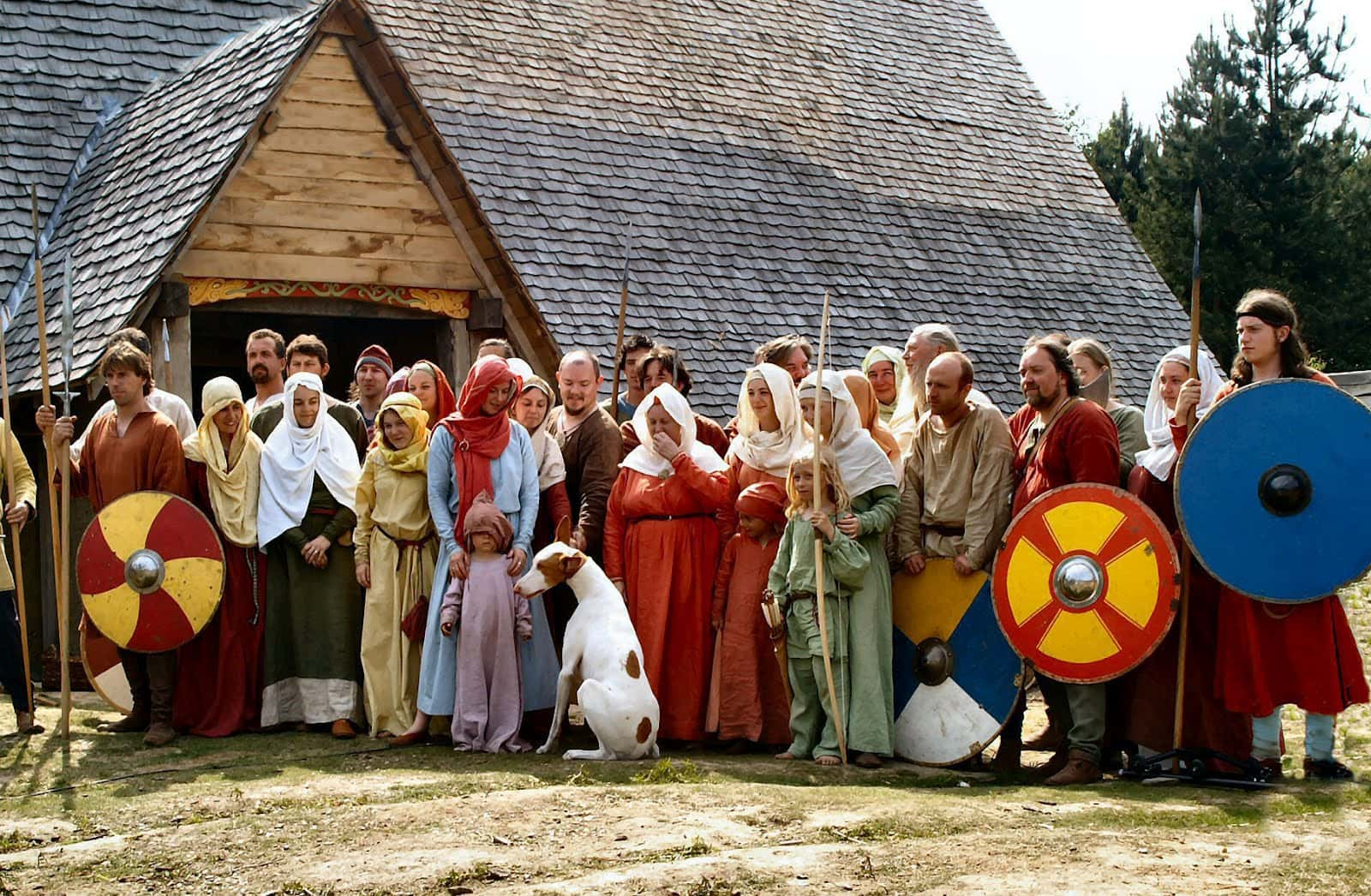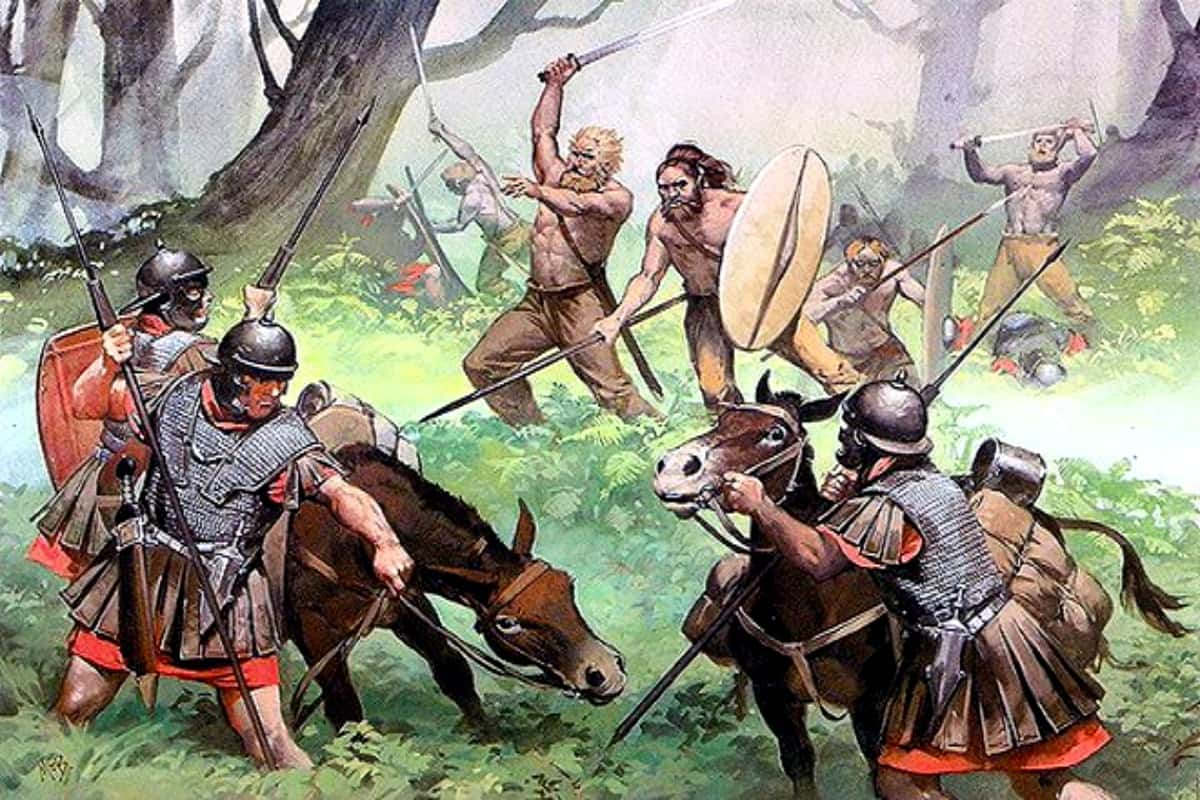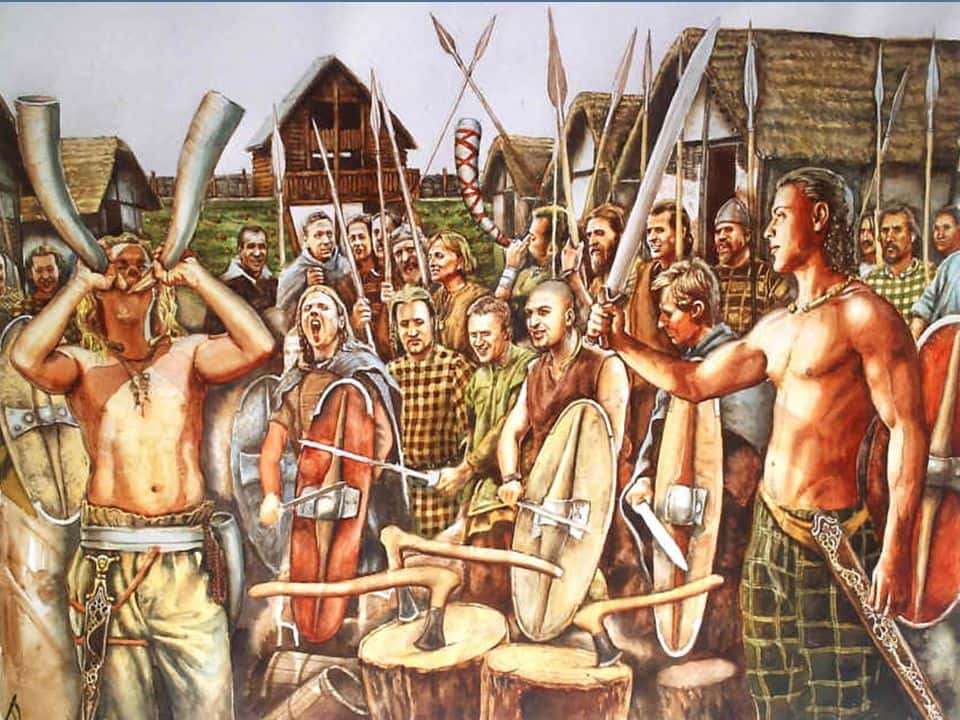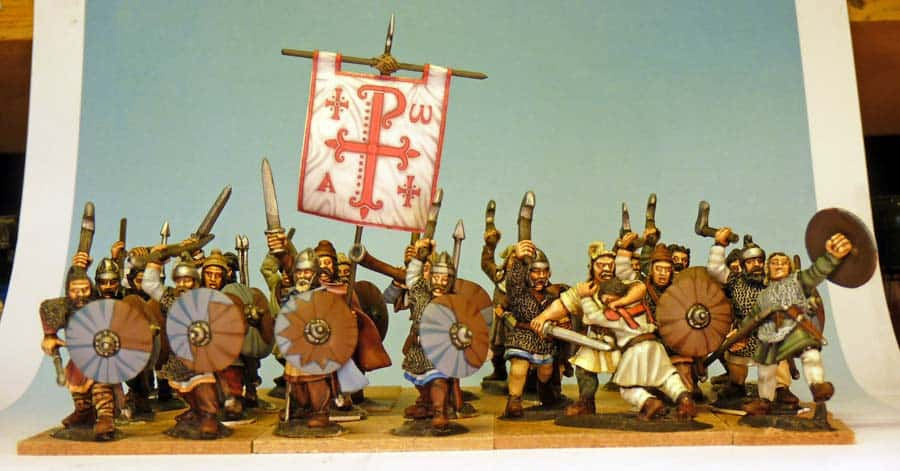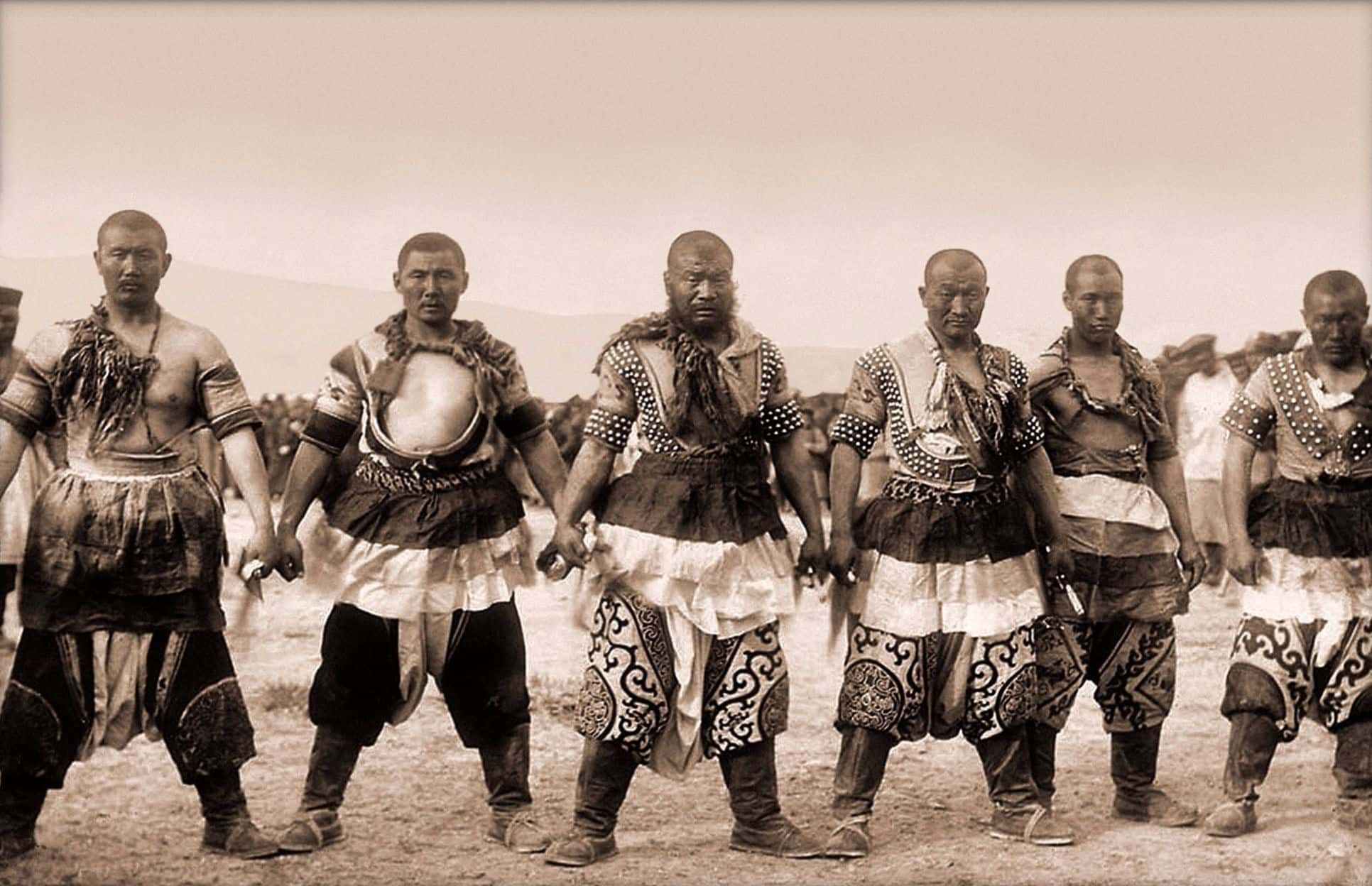Today, we think of barbarians as uncivilized brutes, but when dealing with the various historical groups that have been called barbarians, this isn't always the case. Throughout history, many empire builders used the label of "barbarian" to reinforce an us vs. them mentality between between insiders and outsiders, and to justify acts of conquest and war. So here are 25 facts about barbarians of all different shapes and sizes, and you can decide for yourself just how barbaric they really were.
25. Close to Home
The Romans called many different groups barbarians, and not all of them were from far away lands. The great Roman orator Cicero called the island of Sardinia, just off the coast of modern Italy, "a land of barbarians," and part of the island today is still known as Barbagia.
24. We Can’t Understand You
The word "barbarian" is derived from the Greek βάρβαρος (bárbaros), and it didn't mean exactly the same thing as it does today. It referred to anyone who didn't speak Greek, and it was actually an onomatopoeic word, because other languages sounded like gibberish to the Greeks—bar bar bar was kind of like the Greek way of saying blah blah blah.
23. You’re All Barbarians
Countless groups of people have been called "barbarians" over the years. Some of the most famous examples are the Carthaginians, Celts, Egyptians, Etruscans, Goths, Indians, Persians, Phoenicians, Huns, Mongols and Vikings. That sure is a lot of outsiders.
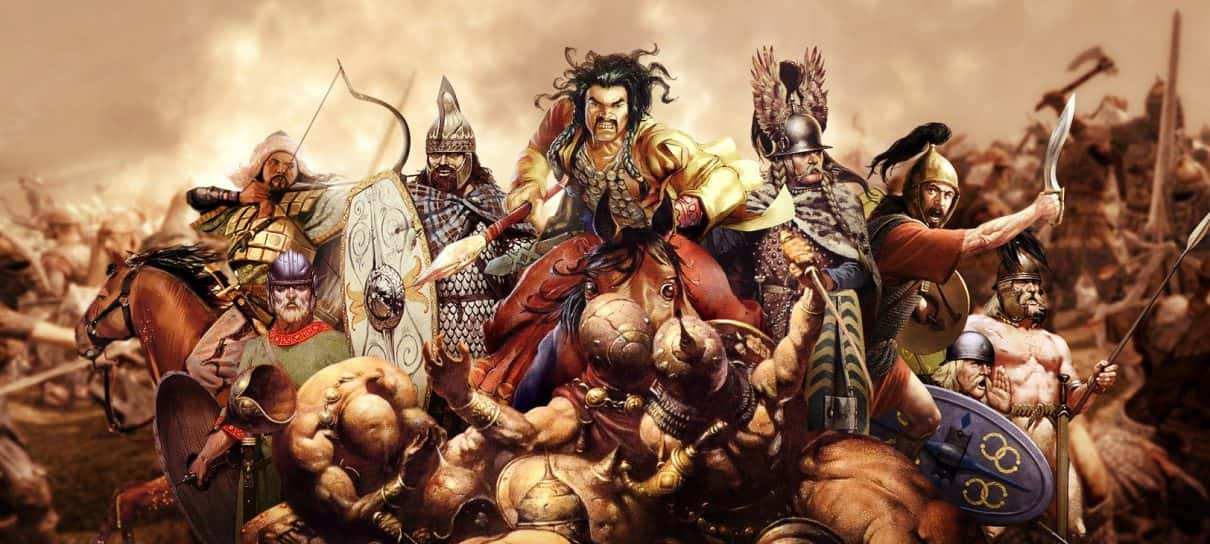 Jove mnerd
Jove mnerd
22. Anything You Can Do, We Can Do Better
Although "barbarian" originally meant anyone who didn't speak Greek, occasionally in history the word has referred to more specific groups of people. In the writings of the Greek historian Herodotus, he almost always uses the word "barbarian" in reference to the Persians, who were frequently at war with the Ancient Greeks. He usually uses the term pejoratively to create favourable comparisons to the Greeks.
21. We’ll Take That
While the Greeks were, as a rule, distrustful of outsiders, they certainly learned a lot from them. Much of early Greek culture, language and art was borrowed from an earlier civilization called the Minoans (named after the legend of King Minos and the Minotaur). They also derived their alphabet from the Phoenicians, and they partially adopted the numerical system of the Egyptians. A little hypocritical maybe?
20. Plato Knew What Was Up
Plato actually rejected the use of bárbaros, and its creation of a dichotomy between the Greeks and foreigners, because he had the wacky idea that it was absurd to lump together and write off everyone in the world who wasn't Greek.
19. Slaves in the House
The development of the term barbarian runs parallel to the history of slavery in Athens. Most of the slaves in the city were non-Greeks, and as slavery spread beyond the wealthy to the homes of the free population of the city, the term took root.
Sources: 1, 2, 3, 4, 5, 6, 7, 8
18. Take the Good and Take the Bad
When the Romans began using the word “barbarus,” it took on the meaning of uncivilized people. They used it in contrast to the ideals of “humanitas,” which meant civilized, educated behavior. Thus, the educated civilized people of Rome had the right to rule over the uncivilized barbarians. However, unlike in many other civilizations, if outsiders subscribed to living by the Roman way of life, then they could potentially reach the ideal of “humanitas” and become Roman themselves.
17. The Tables Have Turned
During and following the fall of Rome, many so-called "barbarians" served as Rome’s military leaders, while others stepped up as protectors of local communities. The final blows to the Roman empire came when the city was sacked by Vandals in 455 AD, and shortly after the German Odoacer reigned as the first King of Italy. The kingdom changed hands over the next century between Ostrogoths, Byzantines, and Lombards, many of whom were at some point considered to be barbarians by the Roman Empire.
16. Anglo-Saxons
As the Roman empire was shrinking, the Saxons began raiding England and turned their efforts into a full-blown conquest. In the 6th century, another group of people known as the Angles landed in England and ruled over the land with Saxons, eventually forging a new civilization from the ashes of the old Roman empire. These barbarian groups are the predecessors of the English people, and it's from the Angles that we get the words English and England.
15. First At It
The Gauls were perhaps the best known barbarian group to the Roman empire. They hailed from the lands that would become modern-day France, Germany, and Belgium. As the Roman Empire broke down, these areas would form their own independent kingdoms.
14. Celtic Pride
The Celtic peoples dominated much of pre-Roman Europe and were highly sophisticated for their time. They built settlements stretching from the British Isles to Eurasia, they were advanced in chariot making and mathematics, and they even created maps of the world based off of astronomy and geometry. Not too bad for "barbarians."
13. Franken France
In 507 AD the Franks, yet another barbarian group, had taken over control of northern France and named Paris their capital. They would go on to expand their territory to incorporate the entire region of France, end Islamic expansion into Europe, and develop their own kingdom in adherence to Roman values after Charlemagne, or Charles the Great, was named Holy Roman Emperor in 800 AD.
Sources: 1, 2, 3, 4, 5, 6, 7, 8
12. Going Through a Goth Phase
Many barbarians inhabited the Iberian peninsula after the fall of Rome, and the Vandals would control a great portion of it until the Visigoths allied with Romans and invaded, conquered, and created their own kingdom. They wouldn’t last long, however, as internal divisions made the weak to invasion, which is just was the Muslim Umayyad Caliphate would do in the 8th century AD.
11. Africans Too
The Berbers of North African also get their name from "barbarian," as the Arabs adopted the term to refer to any non-Arabs in North Africa. The same goes for the Barbary Coast of North Africa and the Barbary Pirates, the name for various groups of corsairs and privateers that operated out of the area in 16th century.
10. Culture Shock
The Chinese also used the concept of the barbarian (though they had a different word) to refer to people, but interestingly enough, they used the term largely to denote different cultures rather than different races. Much of Chinese history was a struggle for centralized power over the land in eastern Asia and the creation of borders. The idea of "Chinese-ness," the particular Chinese way of life, was what separated people. Anyone that conformed to that way of life was considered to be Chinese, and anyone who didn't was a barbarian.
9. Japanese Arrival
Although we mostly think of Europeans as using the term "barbarian," sometimes the label has been turned back on them: Upon the arrival of the Portuguese to Japan in the 16th century, the Japanese took to calling the Portuguese nanban, or "Barbarians from the South."
8. Dirty Dogs
The Aztecs of Mesoamerica described the nomads living on their outskirts as Chichimeca, which roughly translates to “dog people,” as they saw them as uncivilized and primitive. Sounds like a familiar concept...
 Youtube
Youtube
7. Cleanliness is Next to Viking-ness
Vikings have taken on the reputation as being hulking, dirty creatures who sailed, raped, and pillaged their way through Europe, but that image is far from the truth. In reality, Vikings were especially clean and well-groomed. In fact, they were a bit obsessed with cleanliness, at least relative to the attitudes of their contemporaries. They bathed regularly, had a sanctioned day for washing, and even had a law against intentionally dirtying another person, as this was seen as disrespectful. Not so barbaric after all.
Sources: 1, 2, 3, 4, 5, 6, 7, 8
6. Mighty Axes
The chosen weapon of many vikings was the fearsome Dane Axe. These axes could be as tall as a man, and were designed to be swung over a shield wall down onto the heads of enemies. They were so powerful that they could split right through an iron helmet, and the head beneath it. It was so devastating that it's been called "the machine gun of the viking age."
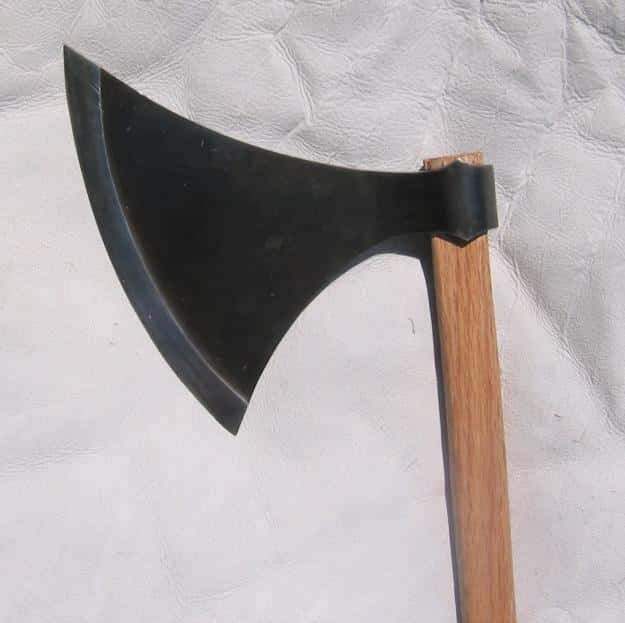 Wikipedia
Wikipedia
5. Hunny We’re Home
Perhaps the most powerful historical Barbarian group was the Huns, a tribal empire that terrorized both Roman Empires, the Persian Empire, and pretty much everyone else who crossed their path. The Huns set the stage for later empires to emerge from the Eurasian steppe, most notably the Mongols, who would control the largest continuous empire in history. The Huns' most famous and successful leader was Attila, who's still an iconic figure to this day. Unfortunately, nearly the only complete contemporary sources on Attila were written by his enemies, which has led to the concept of him and his people as strange, ferocious, and uncivilized.
4. A Literal Divide
The Great Wall of China marked a physical distinction for the Chinese people between themselves and nomads. It established a boundary and created an image of who the Chinese were—settled peoples who wore cloth, cultivated grain and stayed in one place—as opposed to the meat-eating, mobile, fur-wearing barbarians on the other side of the wall.
3. Mongol Protection
The fierce Mongols were in many ways even more civilized than other empires. They were open to different religions and accommodated those of different faiths. Under their rule, they often protected Christians and Buddhists who had previously been persecuted.
2. Growing up Nomad
A key feature for nomadic tribes was that since they were always on the move, they could easily mobilize for war. Perhaps the greatest masters of this mobility were the Mongols whose mastery of horses was a key factor in the creation of their vast empire. Their horses were extremely useful in travel, carrying supplies, and could also be used as food when times got particularly tough.
1. Silk Road
The empire founded by the “barbarian” Mongols set the foundation for an explosion of culture, as they nurtured an unprecedented peace in Eurasia and were responsible for growing the Silk Road into a massive media and distribution center.


